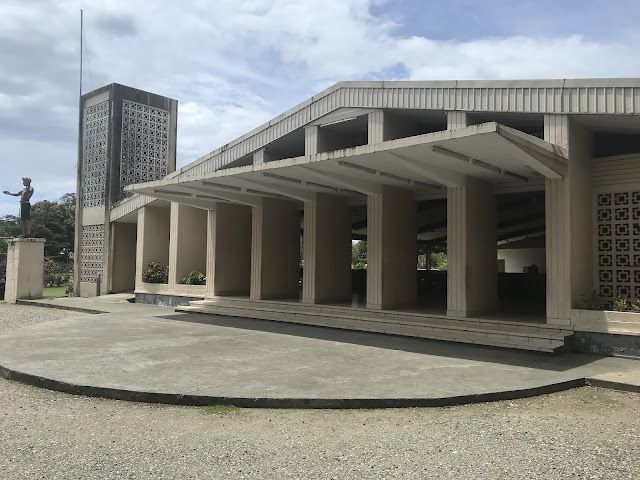 |
Solomon Islands Parliament: photo: TMC |
The paradox for Christian Solomons is that many of us don’t see politics and God as compatible. Needless to say, we pray to God every Sunday and every other day to bless our leaders. How this works baffles the mind. How do we ask someone to be in a place at the same time not believe He can exist in that place?
Perhaps a careful scrutiny of the underlaying assumptions bear clues. Firstly, the premise is a classic logical fallacy; politicians are corrupt therefore politics is corrupt! A fallacy of composition assuming that what is true in part is true in whole, the same as saying “that the engine is red therefore the car must be red”. Secondly, is the ‘problem of evil’. Corruption be it politics or any form is sin, and therefore evil. When as Solomon Islanders we complain of corruption in our politics, we immediately invoke the idea that politics can also be ‘incorruptible’, to mean something good. To acknowledge ‘evil’ is to also assume there is the existence of ‘good’, therefore the existence of an absolute moral law ( that defines what is good) and therefore a moral law giver - God. Corruption then is validated and only true because God exists, who is good and incorruptible, otherwise the very argument that politics be separated from God collapses on itself. To imply good leadership, we are saying there is a definite and good or absolute way of doing things, making decisions and managing public resources in the case of our national leaders. It is the very undertone of the statement when Solomon Islanders ask for good leadership or government. Thirdly, the idea of politics without God appeals to tradition or popular. Many Solomon Islanders without saying why just think like that. That is the view that always has been or is what everybody thinks. So the assumption becomes that just because most Solomon Islanders think like that essentially makes the statement true. Not necessarily, in fact not at all.
Undeniably, corruption does exist in SI politics, but it does not prove or justify the statement that God cannot be involved in politics or government. They are two different matters. Christians can be politicians just as the Church can speak their mind about governance in the land. Christian influence and values have a place in government and local politics. This should not be read as even suggesting a ‘theocratic” Solomon Islands but an appreciation for absolute moral values in government should be preferred over moral relativity or secular ideologies.
TMC2019
